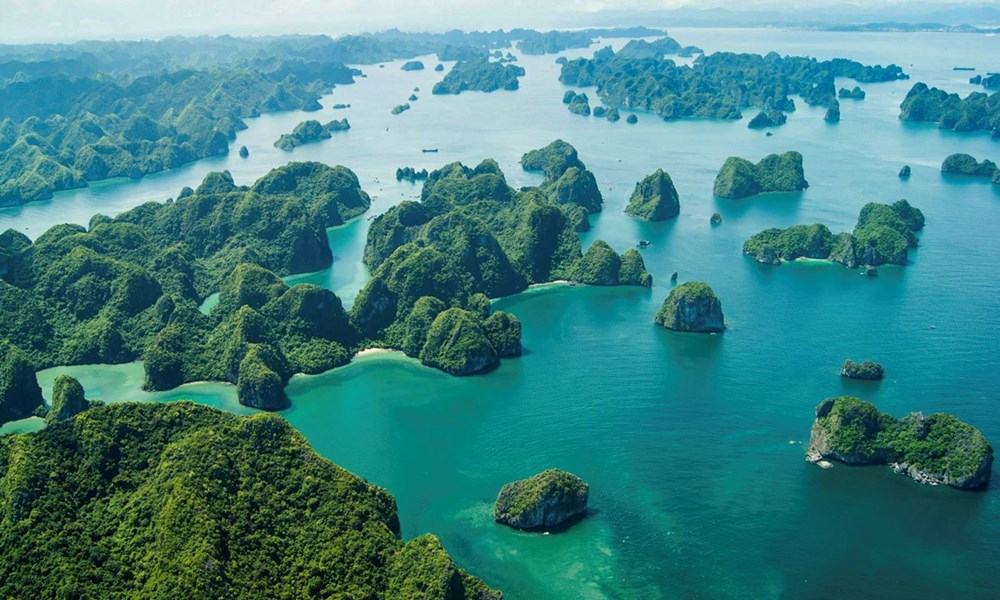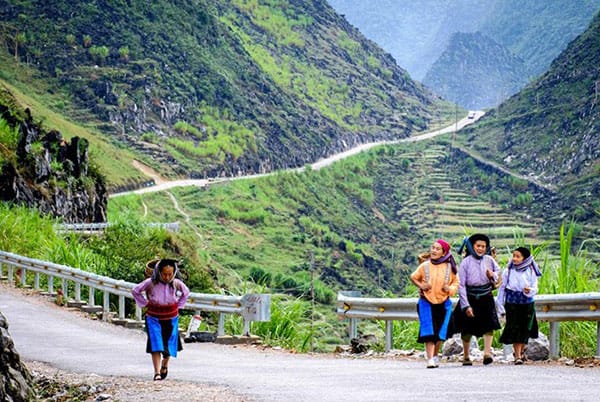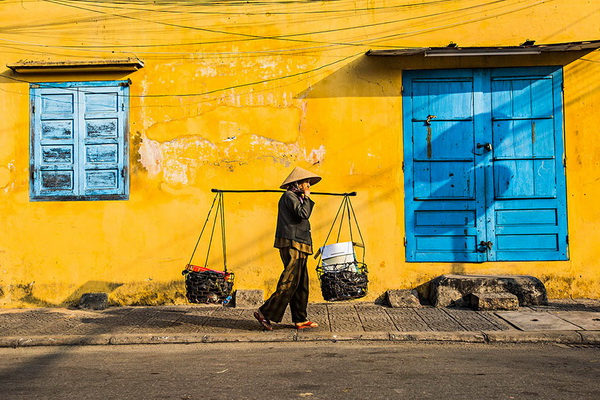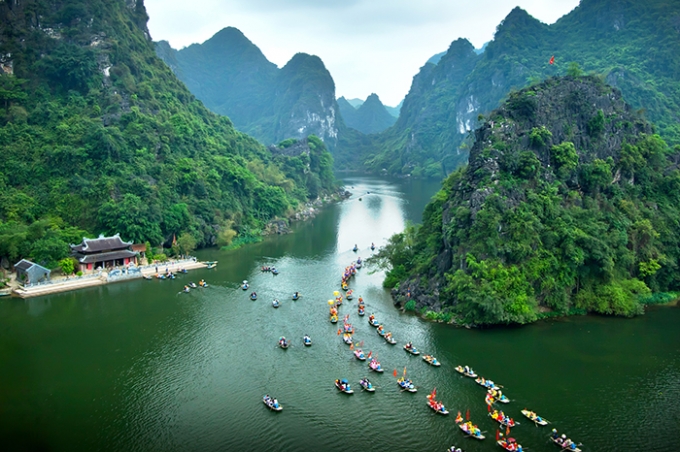World heritages in Vietnam
Vietnam is a country abundant in natural resources, rich cultural treasures, unique 4000 years of national history, all of which contribute to making Vietnam become one of the most attractive destinations in Asia for tourists
Lets join GoodmorningVietnam to explore some World heritages in Vietnam
World Natural Heritages
1. Ha Long Bay
The bay has a total area of 1553 km2 including 1969 large and small islands, concentrated in two main areas are the southeastern area of Bai Tu Long Bay and the south west of Ha Long Bay. Hundreds of rocky islands, each island carries a different shape very lively: Men head island, Rong island, La Vong island, Canh Buom, Hon Tam island, Lu Huong island ...

In 1994, UNESCO officially recognized Halong Bay as a World Natural Heritage Site by its exceptional value for landscape. In 2000, Ha Long Bay continued to be recognized by UNESCO as the second World Heritage Site. Because of geological and geomorphological values.
2. Phong Nha - Ke Bang National Park
Phong Nha - Ke Bang National Park in Quang Binh province - Central Vietnam with a total area of 343,300ha. Beside the value of geography, topography and geomorphology, Phong Nha - Ke Bang is also blessed with beautiful and mysterious landscapes, typical of Son Doong cave. the largest natural world. Phong Nha - Ke Bang National Park was recognized as a World Natural Heritage by UNESCO in 2003 according to the criteria of geology and geomorphology. It was recognized by UNESCO as a World Natural Heritage with the criterion of biodiversity. study, ecology on July 3, 2015
3. Dong van Karst Plateau

Dong Van Karst Plateau (or Plain of Dong Van) is a rocky plateau spreading over four districts of Quan Ba, Yen Minh, Dong Van and Meo Vac in Ha Giang Province, Vietnam. On October 3, 2010, the "Geological Park of the Dong Van Plateau" has been officially recognized by the UNESCO Global Geoparks Network (GGN) Advisory Board as Global Geopark. . This is the only title in Vietnam and second in Southeast Asia.
World cultural heritage
4. Hue Historical relics
The relics of Hue Imperial City or Hue Monuments Complex are historical and cultural relics preserved by Nguyen Dynasty in the period from the early 19th century to the first half of the 20th century in the Hue capital. In the past, Hue City and some neighboring areas of Thua Thien-Hue Province, Vietnam. Most of these relics are now under the management of the Hue Imperial Relief Center and were recognized by UNESCO as World Cultural Heritage on December 11, 1993.
5. Hoi An ancient town

Hoi An ancient town today is a typical example of traditional ports in Southeast Asia preserved intact and thoughtful. Most of the houses here are traditional structures dating from the 17th to the 19th centuries, along the small streets. Hoi An is also a landmark mark of mixed culture. The shrine, shrine bearing traces of the Chinese are located next to the traditional houses of Vietnamese and French-style houses. With outstanding values, at the 23rd session of December 4, 1999, UNESCO recognized the ancient city of Hoi An as a world cultural heritage.
6. My Son Holy Land
My Son Sanctuary is located in Duy Phu Commune, Duy Xuyen District, Quang Nam Province. It is a complex of Cham Pa Monuments in a valley about 2 km in diameter surrounded by hills. Formerly the place where worship organizations as well as the tomb of the Cham king or prince, national interest.
In 1999, My Son Holy Land was chosen by UNESCO as world heritages of cultural
7. Thang Long Royal Citadel
Thang Long Citadel is a relic complex associated with the history of Thang Long - Dong Kinh and Hanoi province starting from the pre - Thang Long (An Nam Dynasty of the VII century) through the Dinh - flourished under Ly, Tran, Le and Hanoi under Nguyen dynasty. This is a huge architectural work, built by the king in many historical periods and became the most important relics in the system of Vietnam relics.
On July 31, 2010, UNESCO has approved a resolution recognizing Thang Long - Hanoi as a world cultural heritage site.
8. Citadel of the Ho dynasty
The Ho Dynasty, now part of Thanh Hoa province, is a fortified city with unique stone architecture of a rare size in Vietnam. On June 27, 2011, this architecture was recognized as a world cultural heritage by UNESCO.
Mixed cultural heritage
9.Trang An, Ninh Binh

Trang An is one of the most beautiful and charming karst landscapes in the world. Overlooking the landscape are forest cover and huge conical hills 200m high, with narrow enclosed valleys, surrounded by interconnected mountain crests, intermittent swamps through the underground stream system with length up to 1 km.
Trang An Scenic Landscape Complex in Ninh Binh Province in Northern Viet Nam is called as an “Ha Long Bay on land” with numerous caves, mountains, valley, trees and historic relics.
On 23 June 2014, Trang An has just been inscribed in the UNESCO’s World Heritage List, proudly being the Viet Nam’s first site to be acknowledged as a mixed natural and cultural heritage
Trang An Scenic Landscape Complex is a very unique example of human history, not only for Viet Nam but also for the region. It has a combination of both natural and cultural values.
GOODMORNINGVIETNAM - MY HAPPINESS JOURNEY